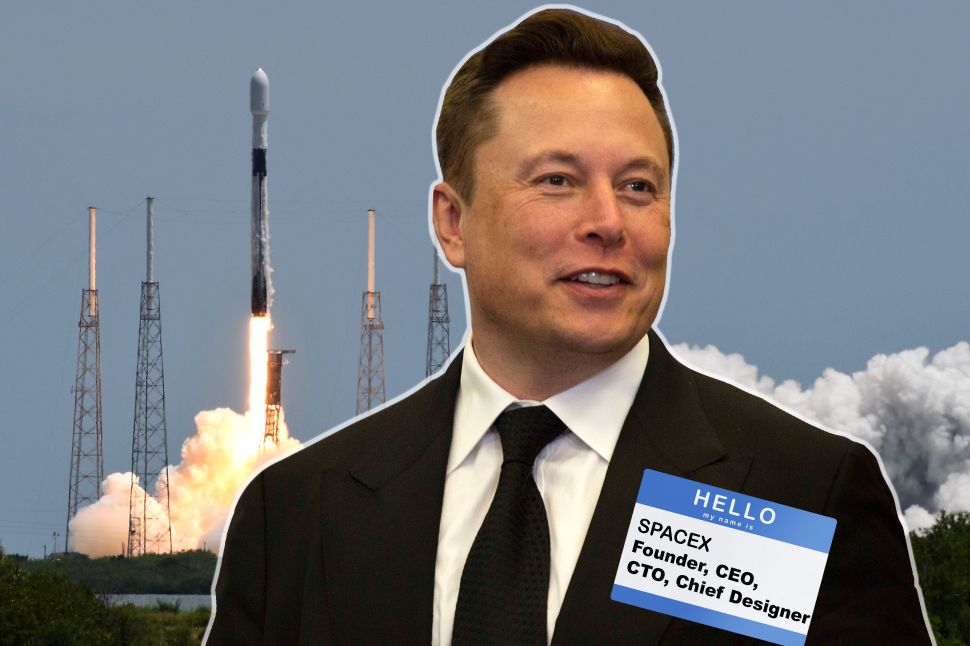Elon Musk and SpaceX: Revolutionizing Space Travel and Technology Innovations

Elon Musk and Space X are names that resonate with innovation and audacity in the realm of space exploration. The vision of pushing humanity beyond Earth is not merely a dream; it has become an achievable goal under Musk’s leadership. This article delves into the revolutionary work being done at SpaceX, examining how Musk’s ambitions are reshaping our understanding of space travel, commercial opportunities, and our potential future as a multi-planetary species.
Introduction to Elon Musk and SpaceX

In the early 21st century, a technological revolution began to take shape, spearheaded by visionary entrepreneurs determined to redefine industries. Among these pioneers is Elon Musk, a name synonymous with disruption and progress. SpaceX, the company he founded in 2002, stands at the forefront of this revolution, aiming to build advanced rocket systems capable of supporting human life beyond our planet. This exploration goes beyond mere scientific curiosity—it encapsulates a journey toward making life multi-planetary.
Musk’s compelling narrative is driven by an unwavering belief in the need for humanity to become interplanetary. He envisions a future where humans can inhabit Mars and beyond, safeguarding the survival of the species against existential threats on Earth. This ambitious dream fuels SpaceX’s projects and initiatives, which reflect a blend of visionary thinking and practical engineering solutions.
The Vision Behind SpaceX

At the heart of SpaceX lies a vision that transcends traditional boundaries in aerospace technology. Elon Musk’s perspective on the cosmos is both expansive and pragmatic, seeking to make space travel not only feasible but also economically viable.
Elon Musk and Space X – Goals and Objectives of SpaceX
The primary objective of SpaceX is to reduce the cost of access to space while enhancing the reliability of its spacecraft. By doing so, Musk aims to create an ecosystem where space exploration becomes a routine part of human existence. This includes launching satellites, facilitating research, and eventually enabling human colonization of Mars.
One of the critical aspects of SpaceX’s mission is its focus on reusability. By developing rockets like the Falcon 9, which can land back on Earth post-launch, SpaceX seeks to change the economics of space travel fundamentally. Each successful recovery reduces costs and increases the frequency of launches, thereby accelerating the pace of space exploration ventures.
The Concept of Multi-Planetary Life
Musk’s aspiration for humanity to become a multi-planetary species is grounded in a sense of urgency. He believes that establishing a self-sustaining city on Mars is imperative to ensure the long-term survival of mankind. With advancements in technology, such as the Starship spacecraft, Musk envisions sending humans to Mars within a decade.
This idea of living on another planet raises philosophical questions about what it means to be human and our responsibilities to other celestial bodies. As we contemplate colonizing Mars, we must consider the ethical implications of potentially altering ecosystems and ensuring that our exploration does not lead to the mistakes made throughout Earth’s history.
Historical Context of Space Exploration

Understanding the evolution of space exploration provides insight into why SpaceX represents such a significant shift in this arena. For decades, space has been the domain of governmental agencies, dominated by national interests and political agendas.
Traditional Governmental Space Agencies
Agencies such as NASA and the European Space Agency (ESA) have led humanity’s forays into space, often focusing on scientific discovery and international collaboration. These organizations successfully launched missions that expanded our understanding of the cosmos, including the Apollo moon landings and the ongoing exploration of Mars through rovers and orbiters.
However, the bureaucratic nature of these agencies has often resulted in delayed timelines and restricted budgets. This environment has created a gap ripe for disruption, allowing innovative companies like SpaceX to enter the scene with fresh ideas and approaches to overcoming existing challenges in space travel.
Emergence of Private Space Companies
The late 20th and early 21st centuries witnessed the emergence of private enterprises eager to capitalize on the growing interest in space. Companies like Blue Origin and Virgin Galactic began exploring commercial spaceflight, creating a competitive landscape that pushed the boundaries of what was possible in aerospace technologies.
SpaceX emerged as a leader in this field, demonstrating that privately funded companies could achieve feats previously thought exclusive to national programs. This shift represents a democratization of access to space, opening doors for commercial ventures and paving the way for future innovations, such as space tourism and asteroid mining.
Key Milestones in SpaceX’s Journey

SpaceX’s rise to prominence is punctuated by several key milestones that showcase its commitment to challenging the status quo of space exploration.
Founding and Early Challenges
Elon Musk founded SpaceX in 2002 with a vision to revolutionize space technology. However, the early years were fraught with challenges. The company faced technical difficulties, funding issues, and skepticism from industry experts who doubted the feasibility of Musk’s goals.
Despite these obstacles, SpaceX persevered. After several failed attempts, they achieved their first successful launch in 2008 with the Falcon 1 rocket. This marked a turning point for the company, instilling confidence in Musk’s vision and laying the groundwork for future achievements.
Notable Achievements and Launches
SpaceX’s journey has been characterized by groundbreaking milestones that have transformed public perceptions of space travel. One of the most notable achievements was the successful launch and landing of the Falcon 9 rocket, marking the first time a privately developed liquid-fueled rocket reached orbit and returned safely to Earth.
Additionally, SpaceX became the first private company to send astronauts to the International Space Station (ISS) in May 2020, further solidifying its role as a pivotal player in the space industry. These accomplishments demonstrate not only technical prowess but also SpaceX’s ability to inspire a new era of exploration.
Revolutionary Technologies Developed by SpaceX
Innovation is the lifeblood of SpaceX, manifesting itself in various revolutionary technologies that set the company apart from its competitors.
Reusable Rockets: A Game Changer
One of the most transformative innovations initiated by SpaceX is the concept of reusable rockets. Traditionally, rockets were single-use, leading to exorbitant costs per launch. SpaceX challenged this model by designing rockets that could return to their launch pads after delivering payloads.
This approach dramatically reduces costs, enabling more frequent launches and paving the way for a sustainable space economy. The success of the Falcon 9’s reusability serves as a blueprint for future endeavors, including the upcoming Starship missions intended for Mars.
Dragon and Starship Spacecraft Innovations
Another cornerstone of SpaceX’s technological advancements is the development of the Dragon spacecraft, designed to transport cargo and crew to the ISS. The Dragon has undergone various iterations, each improving upon its predecessor’s capabilities and safety features.
The Starship spacecraft represents the pinnacle of SpaceX’s engineering efforts. Designed for interplanetary travel, Starship aims to facilitate human colonization of Mars and beyond. With its unprecedented payload capacity and versatility, Starship is poised to redefine space exploration.
SpaceX’s Recent Developments

As SpaceX continues to break barriers, recent developments highlight the company’s commitment to pushing the envelope further and redefining space travel.
The Chopstick Catching Technique
Among the most intriguing innovations announced by SpaceX is the chopstick-catching technique, slated for implementation in early 2025. This method involves using mechanical arms to catch the Starship upper stage mid-air after launch, providing a new way to recover components for refurbishment.
This approach epitomizes Musk’s vision of making space travel more efficient and environmentally sustainable. By catching and reusing rocket stages, SpaceX is setting a precedent for future space missions where waste reduction becomes a priority.
Upcoming Missions and Projects
With a plethora of ambitious projects on the horizon, SpaceX plans to expand its reach further into space. Upcoming missions include lunar landings as part of NASA’s Artemis program and plans for crewed missions to Mars.
These endeavors not only capture the imagination of the public but also reinforce the notion that space exploration is an attainable goal for humanity. The continuous refinement of technologies and the relentless pursuit of ambitious timelines serve as a rallying cry for those who share Musk’s vision.
SpaceX’s Role in Commercial Spaceflight

The evolution of space exploration has ushered in an era of commercialization, with SpaceX at the helm of this transformation.
Opportunities for Private Enterprises
With the entrance of private companies into the realm of space, opportunities for entrepreneurial ventures have blossomed. SpaceX has opened doors for startups to engage in satellite deployment, research missions, and even space tourism.
This shift toward privatization allows for increased competition, driving innovation and reducing costs across the board. As more players join the market, the landscape of space exploration will continue to evolve, offering new possibilities for economic growth.
The Rise of Space Tourism
Space tourism has emerged as one of the most exciting prospects ignited by SpaceX’s endeavors. As the company develops more reliable and accessible technologies, the dream of ordinary citizens traveling to space is becoming increasingly tangible.
Suborbital flights, lower costs, and advancements in launch capabilities have sparked interest from both wealthy individuals and adventure-seekers alike. This burgeoning industry promises to reshape societal perceptions of space and open new lines of inquiry regarding our relationship with the cosmos.
The Cultural Impact of SpaceX
Beyond technology and economics, SpaceX plays a vital role in shaping cultural perceptions of space exploration.
Public Perception of Space Exploration
The success of SpaceX’s missions has rekindled public enthusiasm for space exploration. Through live broadcasts of launches and engaging social media campaigns, SpaceX has managed to capture the world’s attention, inspiring a new generation to dream of careers in science and aerospace.
This cultural shift encourages inclusivity and collaboration across diverse disciplines, creating a global community united by curiosity and exploration. The burgeoning interest in space has implications for education and outreach, fostering a greater understanding of science and technology among the general populace.
Influencing the Next Generation of Scientists
By making space exploration more visible and relatable, SpaceX inspires young people to pursue careers in STEM fields (science, technology, engineering, and mathematics). Education programs and partnerships with schools have already begun to cultivate interest and engagement in these subjects.
Moreover, SpaceX’s emphasis on ambitious goals encourages students to think critically and innovatively, preparing them for the challenges of tomorrow. The imagery of rockets launching into the sky serves as a powerful metaphor for possibility and ambition, motivating youth to strive for greatness in their respective fields.
The Economics of Space Exploration
The financial implications of space exploration cannot be ignored, as they represent a pivotal aspect of the ongoing discourse surrounding sustainability and accessibility.
Cost Reduction Strategies
Central to SpaceX’s mission is the goal of drastically reducing the costs associated with space travel. The development of reusable rockets is one of the most significant strategies employed by the company to achieve this objective.
By minimizing the expense of launching payloads into orbit, SpaceX is transforming the economics of space travel. This paradigm shift may pave the way for a new wave of investments and initiatives aimed at harnessing the resources available in space, thus allowing for greater exploration and innovation.
Potential Economic Benefits from Space Ventures
The benefits of commercial space ventures extend far beyond immediate profits. Industries ranging from telecommunications to agriculture stand to gain immensely from improved access to space.
Satellite technology, which enables global communications, weather forecasting, and navigation, underscores the profound impact of space on our daily lives. As SpaceX continues to enhance launch capabilities, the potential for economic growth in related sectors expands significantly, creating jobs and spurring technological advancements.
Ethical Considerations in Space Exploration

As humanity reaches for the stars, ethical considerations emerge surrounding our responsibilities to other celestial bodies and the environments we leave behind.
Environmental Impact of Space Activities
While space exploration offers immense potential, it also raises concerns about the environmental impact of space activities. The increase in rocket launches contributes to atmospheric pollution, while the growing number of satellites poses risks to space debris management.
Ethical space exploration requires a commitment to minimizing environmental harm. SpaceX, along with other companies in the sector, must acknowledge these challenges and work towards sustainable practices that protect both our planet and the cosmos.
Responsibility as Earth Caretakers
The exploration of space compels us to examine our roles as caretakers of Earth. As we venture beyond our planet, we must consider the lessons learned from our history—protecting ecosystems, respecting natural resources, and valuing cooperation over conflict.
Embracing a mindset of stewardship is essential as we explore new frontiers. Our aspirations for interplanetary life should not overshadow our responsibility to safeguard our home planet, ensuring that our pursuits in space contribute positively to humanity’s overall welfare.
International Collaboration in Space

As space exploration evolves, international collaboration becomes increasingly important in addressing shared challenges and advancing collective goals.
Partnerships with Other Space Agencies
SpaceX has established partnerships with government agencies worldwide, including NASA and ESA, to further enhance its capabilities and promote collaborative missions.
These alliances allow for resource sharing, knowledge exchange, and joint missions, enabling countries to pool their expertise and achieve mutual objectives. Such collaborations may lead to breakthroughs in technology and improve global security through cooperative space exploration.
Global Cooperation in Space Missions
The drive towards international cooperation highlights the interconnectedness of our world. As nations work together on ambitious space projects, they foster goodwill and diplomacy, promoting peace and collaboration among diverse cultures.
The future of space exploration hinges on our ability to unite as global citizens. By prioritizing cooperation over competition, we can address complex challenges and realize the full potential of human ingenuity as we venture into the cosmos.
The Challenges Facing SpaceX
Despite its many successes, SpaceX faces a range of challenges that test its resilience and adaptability in the ever-evolving landscape of aerospace technology.
Technical and Engineering Hurdles
The nature of space exploration inherently comes with technical challenges, often requiring innovative solutions to overcome engineering obstacles. SpaceX continually pushes the boundaries of what is possible, yet each new project introduces complexities that must be addressed.
From developing reliable engines for the Starship to ensuring the safety of crewed missions, SpaceX operates at the cutting edge of technology. Maintaining a culture of rapid iteration and learning from failures is crucial for continued advancement in this dynamic field.
Navigating Regulatory Landscapes
Operating within a heavily regulated industry presents another hurdle for SpaceX. National and international regulations govern almost every aspect of space exploration, from launch approvals to orbital debris management.
Navigating these regulatory landscapes requires strategic planning and foresight. As SpaceX strives to expand its operations globally, it must cultivate relationships with regulatory authorities and adapt to evolving policies that impact the space industry.
Elon Musk’s Leadership Style
Elon Musk’s leadership style is characterized by a combination of visionary thinking and an often controversial approach to risk-taking.
Visionary Thinking and Risk-Taking
Musk is widely recognized for his audacious goals and willingness to challenge norms. His approach to leadership encourages a culture of innovation, propelling SpaceX forward at an astonishing pace.
While some criticize his ambitious timelines and high-stakes decisions, it is this very spirit of risk-taking that enables SpaceX to achieve remarkable milestones. Musk’s ability to inspire teams to work toward a shared vision fosters creativity and empowerment, fueling a relentless drive for excellence.
Balancing Innovation with Accountability
Despite the emphasis on innovation, accountability remains a critical facet of SpaceX’s operations. Musk’s leadership involves striking a delicate balance between pursuing ambitious objectives and maintaining rigorous safety standards.
Ensuring the safety of crewed missions and upholding quality control measures is paramount. By cultivating an atmosphere where experimentation coexists with responsibility, Musk reinforces SpaceX’s commitment to achieving groundbreaking advancements without compromising safety.
Future Prospects for SpaceX
As we look ahead, the possibilities for SpaceX appear boundless, with aspirations that could reshape humanity’s trajectory.
Long-Term Goals and Ambitions
Musk’s long-term goals encompass more than just reaching Mars; they involve creating a thriving interplanetary civilization that ensures the survival of the human race. The establishment of a self-sustaining city on Mars remains a central tenet of his vision.
Achieving these ambitious goals will necessitate sustained investment, global collaboration, and the continued development of cutting-edge technologies. As Musk rallies support for these endeavors, the conversation surrounding interplanetary life will gain traction and legitimacy.
Potential Impact on Future Space Policies
The success of SpaceX could influence future space policies and regulations, prompting governments to re-evaluate their approaches to space exploration and commercialization.
Adapting to the changing landscape may involve revisiting international treaties, fostering public-private partnerships, and exploring innovative models for funding space initiatives. As SpaceX sets precedents, policymakers must respond to the evolving realities of a privatized space industry.
Speculation on Mars Colonization
The quest to colonize Mars has captured the imaginations of scientists, futurists, and enthusiasts alike, driving exploration efforts closer to reality.
Feasibility Studies and Preparations
Research into the feasibility of Martian colonization spans various fields, from life sciences to engineering. Understanding the challenges posed by the Martian environment—such as radiation exposure, resource scarcity, and harsh climates—will be indispensable in preparing for human settlement.
SpaceX’s commitment to conducting comprehensive feasibility studies lays the groundwork for informed decision-making. Collaborating with scientists and experts will help refine strategies for ensuring the health and safety of future Martian settlers.
The First Human Settlement on Mars
The prospect of establishing the first human settlement on Mars looms large on the horizon, igniting discussions about what it would mean for humanity. Musk envisions a thriving colony equipped with the necessary infrastructure for sustainable living—water extraction, food production, and energy generation all play critical roles.
Creating a cohesive society on another planet raises questions about governance, ethics, and cultural integration. As we ponder these implications, the excitement surrounding interplanetary exploration takes on new dimensions, emphasizing humanity’s adaptability and resilience.
The Legacy of Elon Musk and SpaceX
As we reflect on the contributions of Elon Musk and SpaceX, it becomes clear that their impact extends far beyond technical achievements.
Shaping the Future of Humanity
Musk’s relentless drive for innovation serves as a catalyst for shaping the future of humanity. By pursuing ambitious goals and championing the commercialization of space, he invites us to reconsider our place within the universe.
The legacy of SpaceX may ultimately lie in its capacity to inspire collective aspirations for explorations beyond our earthly confines. As we venture into the unknown, Musk’s vision encourages a renewed sense of hope and possibility, igniting the flame of curiosity that defines the human spirit.
Reflections on a New Era of Space Exploration
The journey undertaken by SpaceX marks a significant transition into a new era of space exploration—one characterized by collaboration, innovation, and the promise of humanity’s expansion into the cosmos.
As we navigate the complexities of this evolving landscape, it is essential to recognize our shared responsibilities as we pursue the stars. The dialogue surrounding our relationship with space prompts reflection on our obligations to preserve and protect both Earth and the celestial bodies we seek to explore.
Conclusion
The saga of Elon Musk and SpaceX is a testament to the power of vision, innovation, and determination. As we stand on the precipice of a new age of exploration, the insights gleaned from their journey encourage us to dream bigger, act bolder, and embrace the challenges that lie ahead. Together, we can redefine our relationship with space, forging a path toward a future where humanity thrives among the stars.







